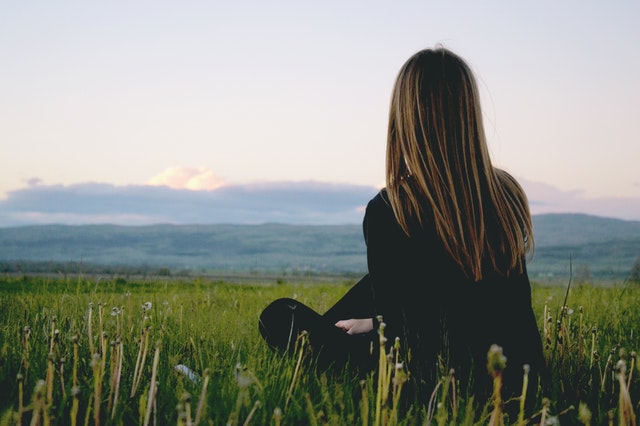ACLU FLASHBACK.
/As much as I’d like to imagine myself dressed in George Washington-esque garb, with one foot up on the bow, chin up, bouncy white curls blowing in the winds of democracy…. I confess to feeling mostly inadequate when it comes to taking up space in the world. I have a difficult time naturally being comfortable outside of my own happy home, let alone being thrust into a group of 300 strangers and forced to openly discuss the state of affairs in our country. Needless to say, lobbying sounded like the last thing on earth I would be good at. But here I digress: the ACLU (American Civil Liberties Union) would provide childcare for the first time at a seminar in Sacramento that aims to empower constituents with tools to mold our government and change unjust laws. (Thank you, Tamara, for insisting that mothers with children are a valuable force when it comes to changing the world.)
I could take my two older children with me to a full day of training followed by a day of lobbying at the capital. I could demonstrate what I so often preach, “we can do hard things.” I could show them, and in doing so possibly fail miserably, which would be something else that I can’t shut up about: FAIL is an acronym that stands for First Attempt In Learning. I had no excuse not to do this thing. We would confidently march through those white pillars dating back 125 years, past metal detectors and armed guards, and hunt down our states assemblymen and senators so that we could figuratively and literally open new doors to express our demands as “we the people.”
I didn’t do this thing on a complete whim. This winter I had the pleasure of attending a training course by the ACLU in Fresno. I felt assured that a woman like me: white, middle-class citizen, living in a systematically white supremacist society, had a bit of a duty to learn more about the existing laws that make our society just so. I have discovered things that make it impossible for me to ignore, feel shame about, or perpetuate, what being white is. A host of books led me to seek out a new education of what history has held for “not white” people. I could contribute in this demand for justice that so many people have been fighting for, year after year, trampled constitutional right, after trampled constitutional right... way before it got cool; people who have led lives cursed by a fear under existing laws and witnessed the brutality left in the wake of lost liberties.
I have hope that a new privilege; one where I acknowledge the lives of these people who have battled hardships outside of my knowledge: Black, Latino, Asian and native people of color- will enable me to hear their wisdom and face the challenges ahead with camaraderie. These races and many others have left timelines riddled with their rights ignored. They continue to challenge this country for interpreting them as “not-white” in an attempt to end the repeated crimes against them, ones that benefit the wealthiest and the most powerful. I am aware that my interpretation of life is often rosy in comparison to those battling systematic racism. I don’t know what it personally feels like to be judged based on my race, but it is imperative that I hear the stories from those who do so that I can understand what life in America looks like outside of my white veil.
In the first workshop of our day-long training, I was able to choose between several very necessary and important topics. Some of them I felt I had a grasp on already from reading, so I made an effort to attend the workshops that offered knowledge about topics I was mostly unfamiliar with. The first workshop I attended was called “ICE out of California”. I learned what it means to be a sanctuary state, and how the law is being broken by our local authorities. Each time an officer ignores our 14th amendment, arrests “people” and detains them without due process of law, our laws become worthless. These authorities then deliver people to the hands of immigration and customs authorities (ICE), an action that is prohibited under the law.
And I can already hear my very conservative community telling me, “If people can’t make a good decision then the government has to make it for them…” I can get on board with this if we are talking about children, which is the common analogy people make; sometimes my kids, all 4, decide that the dinner I prepared for them is not their favorite, but I demand that they eat it anyway. But parenting is an authoritative role, a dictatorship if you will. And passively defending our law enforcement by these tyrannical concepts not only undermines the battles we have fought through history to create and maintain our democracy but also allows the rights that you value as a citizen to be jeopardized.
The first step I can take to protect myself from those who would hand our rights over to a dictator is to understand the laws that are being broken; like (Senate bill) SB 54.
“California Senate Bill 54 effectively makes California a “sanctuary state” by legalizing and standardizing statewide non-cooperation policies between California law enforcement agencies and federal immigration authorities.”(Federation for Fair American Immigration Reform)
This is the current law, regardless of any federal lawsuit that aims to attack our states attempts at establishing very standard rights for undocumented immigrants. Other bills such as (assembly bill) AB 450, and AB 103, are also included in this attack. We often acknowledge that the system is flawed in our state and our country when it comes to handling the lives of the 11 million immigrants living here. These bills are attempting to make strides to correct those flaws. It is “unfinished work” an ACLU veteran named Korina explained to me. She is not fighting with an unrealistic goal to fix all the injustice in our world but to continue chipping away at it. Demanding rights for all people is her walk in life now. She may not see the benefit of her unremitting determination, but she is well aware that the struggle is worthy.
When other people suffer under the law of our land, we all suffer. Doing nothing about this issue is leaving a clear path for those who would ignore the rights of others. We are mothers, capable of empathizing with a woman who is ripped from the clutches of her children, slandered as a “criminal” without any due process of law, and detained while she awaits deportation. It is a nightmare to imagine. When others call her an “illegal” or a “criminal” we know she has a different name within her family. We know how needed she is and valued she is for her role as a caregiver. The deficit she leaves when local authorities assist ICE in yanking her from the community like a weed is not available jobs for citizens or less criminal activity. The void left when we allow people to be nothing short of kidnapped is a vacancy filled with anger and hurt and massive shortcomings for those who depend on her.
“Alejandra Galacia, 35, said she hardly left her home, not even to buy groceries, the week of the ..arrests. The Lamont resident said she worried about being separated from her three young daughters.” (Andrea Castillo, New York Times)
History has so much to offer us when it comes to unjustly marking someone as a villain without first trying them in a court of law. Our country has made this mistake over and over. The 14th Amendment reminds us that we have rights as citizens, but also that any “person” in this country is entitled to respect under the law:
“...nor shall any State deprive any person of life, liberty, or property, without due process of law; nor deny to any person within its jurisdiction the equal protection of the laws.”
Our communities across this state and others are standing idly by while a precedent is set; one that tells undocumented immigrants that they should be afraid, that reporting violence, or criminal activity in their own lives, will likely result in them being torn from their families. How can this fear make us safer? One day of lobbying won't save the world from tyranny. This battle continues every time I speak to another citizen who narrowly defines a group of people as “illegals”. And while our federal laws and state laws continue to conflict, I will reach out in my community to volunteer, and speak up for those who cannot.
If you feel like your own voice has a passion and purpose, I full-heartedly recommend looking into joining the ACLU. I also recommend talking to someone who disagrees with your views because it's easy to get tunnel vision and forget that usually we as people are not as polarized as we think we are (thanks, Dad.)
-Emily
“From the equality of rights springs identity of our highest interests; you cannot subvert your neighbor’s rights without striking a dangerous blow at your own”
-Carl Schurz



































